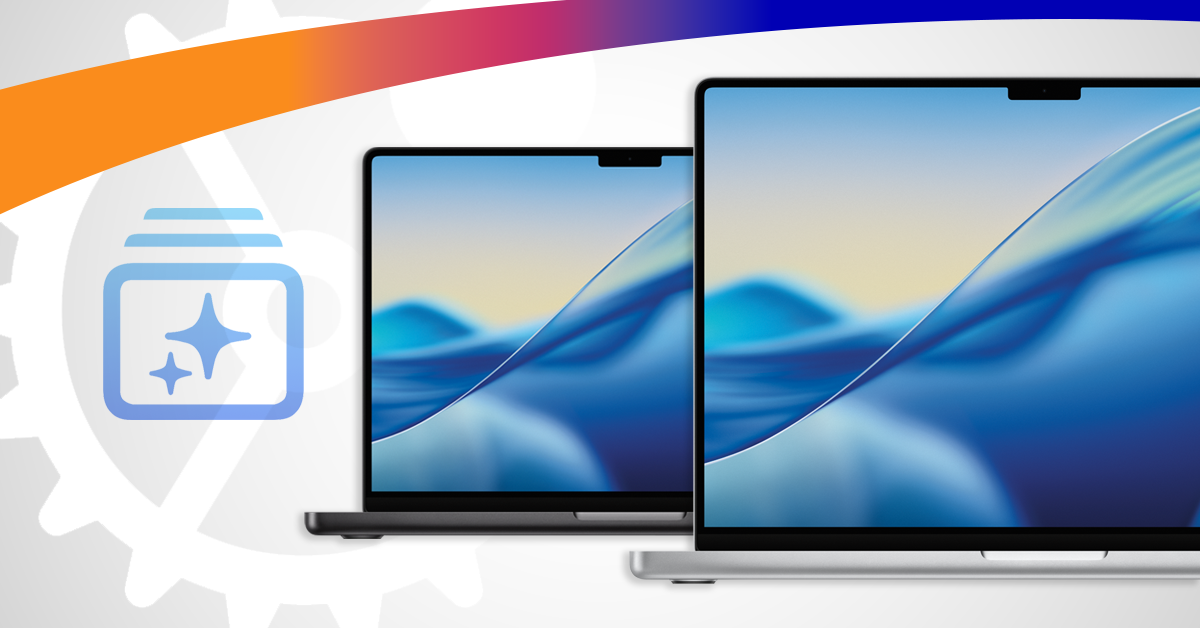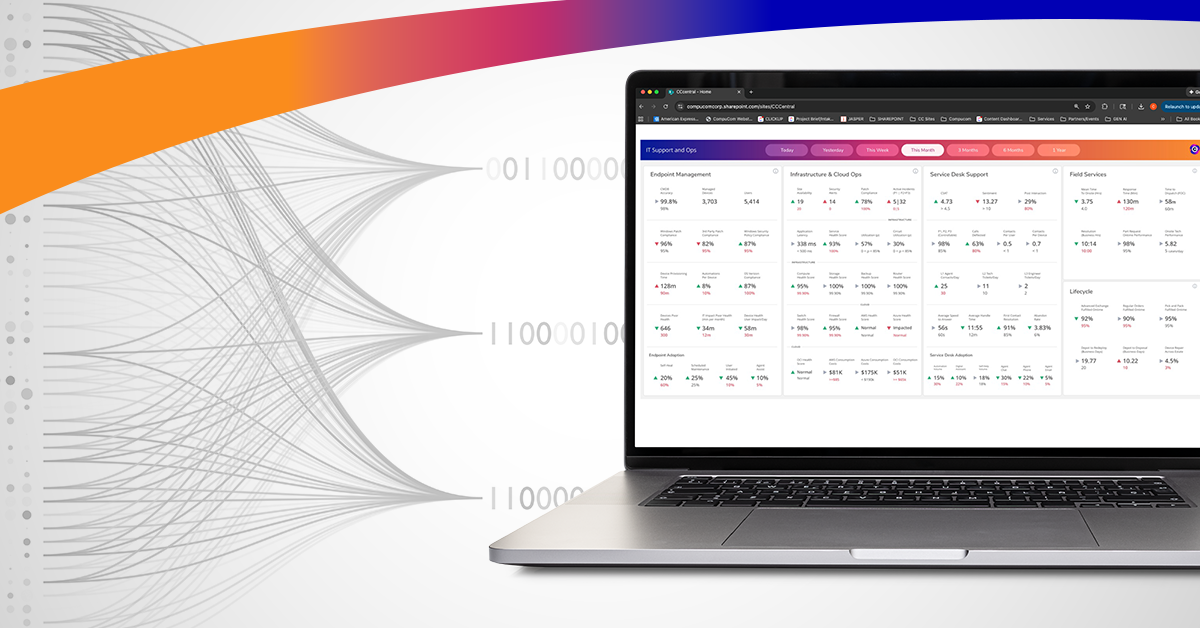- Managed Infrastructure and Cloud Services
- Advanced Technology


Emma Mak • Staff Writer
The rise of the “zero consumer”
Are you a “zero consumer”? A rising global phenomenon, these consumers have zero boundaries (drifting between online and in-store), zero loyalty, zero moderation (either scrimping or splurging), and zero patience (they want it now).
They also consider net zero as a buying factor. But while sustainability and social responsibility weigh on their minds – these shoppers don’t want to lose out on value. The average consumer is tightening their belt. As we begin 2024, The Conference Board projects real US consumer spending will drop 1.1% in the first quarter and 1% in the second quarter.
With this typical profile of who retailers are selling to, let’s dive into some trends that might help win over the zero consumer in 2024.
Contactless Checkout
Who relishes the thought of long line-ups that place you within easy sneezing distance of other mall customers? One good outcome of 2020 is raised awareness of the importance of hygiene, which accelerated contactless checkout trends. Customers like the option of paying for their purchases with phones or credit cards without touching a keypad or interacting with a cashier. This makes the shopping experience safer and speeds up the checkout process — a welcome efficiency improvement, especially with the current shortage of retail workers.
Not all consumers will choose self-service kiosks. Self-checkout may mean shorter lineups, but some don’t wish to contend with the frustration of scanning items and possibly troubleshooting for themselves (unless there’s very attentive customer support).
A company that has really nailed creating a great checkout experience is Uniqlo, a Japanese clothing manufacturer and retailer. Dispensing with the need to scan items, they have a checkout process for which customers only need toss purchases into a container bin. Radiofrequency identification chips (RFID) embedded in the price tags detect and record the price of all the goods in the bin, making it an effortless experience for consumers. The self-checkout terminals have even become a signature element of the Uniqlo store experience — customers rave about them.
Sustainability Influence
As many grapple with climate anxiety these days, consumers want to know that the products they buy are sustainable and ethically produced. Retailers that embrace sustainability and social responsibility will not only be doing the right thing — they’ll elevate their brand in the eyes of consumers. This includes using eco-friendly materials, reducing waste, and supporting ethical labor practices.
A leader in the realm of prioritizing sustainability is Target. They are on their way to achieving key sustainability goals such as circular design principles (thoughtful material choice, durability, reparability, and recyclability) and 100% renewable electricity by 2030. The company claims its efforts have enhanced its brand reputation, customer satisfaction, and loyalty. This is backed by the numbers; their annual revenue for 2023 increased by 2.94% from 2022.
Leveraging AI for Personalization and Customer Experience
Zero consumers are authentic and well-meaning — but a little fickle. They’ll let loyalty fly out the window and give another brand a try if it makes their dollars go further. The rapid expansion of online shopping makes this easier as they can quickly bounce to competitors’ sites or find other sources through social media.
Retailers can combat this by creating a stronger emotional connection via personalization. Using AI-powered recommendations to harness the power of customer data, such as past purchasing behavior and preferences, retailers can help customers find products relevant and interesting to them. Consumers love the value this creates. Tailoring marketing and sales strategies to the right audience increases customer retention which is smart business.
Today and in the coming year retailers are leaning into artificial intelligence (AI). According to Retailboss.co, “the retail landscape is poised for a transformative shift driven by the relentless march of artificial intelligence (AI).”
Navigate the Trends with a Managed Services Provider (MSP)
Innovation in retail has skyrocketed. In the last three years, there have been over 133,000 patents granted. Companies placing technology at the forefront of their business models continue to leave their competition in the dust.
Keeping your business agile and knowing your customer will always make for solid strategy. With all the innovation competing for attention, it’s also crucial to not fall for hype and take a pragmatic approach to evaluating whether emerging technologies will help you reach your goals. Besides infrastructure support and services to keep your sales and back-office working, having an MSP as your strategic partner helps you make the right moves to transform your business and optimize the customer experience for today’s zero consumer.
In this series:
RecenT

The Mac Management Playbook: 8 Steps to Deployment at Scale

Full Lifecycle, Full Visibility: Maximizing the Value of Mac in the Enterprise

Mac in the Enterprise — Myth vs. Reality: Debunking the Top Barriers to Adoption

Maturity Assessments Set a Clear Path to IT Modernization

Opportunity in Uncertainty: Leveraging Data for Fearless Decision-Making

Opportunity in Uncertainty: Turning 6 Top IT Challenges into Strategic Advantages
TOPICS
Retail Trends 2024: Delivering for The Zero Consumer
- Managed Infrastructure and Cloud Services
- Advanced Technology

Emma Mak • Staff Writer
The rise of the “zero consumer”
Are you a “zero consumer”? A rising global phenomenon, these consumers have zero boundaries (drifting between online and in-store), zero loyalty, zero moderation (either scrimping or splurging), and zero patience (they want it now).
They also consider net zero as a buying factor. But while sustainability and social responsibility weigh on their minds – these shoppers don’t want to lose out on value. The average consumer is tightening their belt. As we begin 2024, The Conference Board projects real US consumer spending will drop 1.1% in the first quarter and 1% in the second quarter.
With this typical profile of who retailers are selling to, let’s dive into some trends that might help win over the zero consumer in 2024.
Contactless Checkout
Who relishes the thought of long line-ups that place you within easy sneezing distance of other mall customers? One good outcome of 2020 is raised awareness of the importance of hygiene, which accelerated contactless checkout trends. Customers like the option of paying for their purchases with phones or credit cards without touching a keypad or interacting with a cashier. This makes the shopping experience safer and speeds up the checkout process — a welcome efficiency improvement, especially with the current shortage of retail workers.
Not all consumers will choose self-service kiosks. Self-checkout may mean shorter lineups, but some don’t wish to contend with the frustration of scanning items and possibly troubleshooting for themselves (unless there’s very attentive customer support).
A company that has really nailed creating a great checkout experience is Uniqlo, a Japanese clothing manufacturer and retailer. Dispensing with the need to scan items, they have a checkout process for which customers only need toss purchases into a container bin. Radiofrequency identification chips (RFID) embedded in the price tags detect and record the price of all the goods in the bin, making it an effortless experience for consumers. The self-checkout terminals have even become a signature element of the Uniqlo store experience — customers rave about them.
Sustainability Influence
As many grapple with climate anxiety these days, consumers want to know that the products they buy are sustainable and ethically produced. Retailers that embrace sustainability and social responsibility will not only be doing the right thing — they’ll elevate their brand in the eyes of consumers. This includes using eco-friendly materials, reducing waste, and supporting ethical labor practices.
A leader in the realm of prioritizing sustainability is Target. They are on their way to achieving key sustainability goals such as circular design principles (thoughtful material choice, durability, reparability, and recyclability) and 100% renewable electricity by 2030. The company claims its efforts have enhanced its brand reputation, customer satisfaction, and loyalty. This is backed by the numbers; their annual revenue for 2023 increased by 2.94% from 2022.
Leveraging AI for Personalization and Customer Experience
Zero consumers are authentic and well-meaning — but a little fickle. They’ll let loyalty fly out the window and give another brand a try if it makes their dollars go further. The rapid expansion of online shopping makes this easier as they can quickly bounce to competitors’ sites or find other sources through social media.
Retailers can combat this by creating a stronger emotional connection via personalization. Using AI-powered recommendations to harness the power of customer data, such as past purchasing behavior and preferences, retailers can help customers find products relevant and interesting to them. Consumers love the value this creates. Tailoring marketing and sales strategies to the right audience increases customer retention which is smart business.
Today and in the coming year retailers are leaning into artificial intelligence (AI). According to Retailboss.co, “the retail landscape is poised for a transformative shift driven by the relentless march of artificial intelligence (AI).”
Navigate the Trends with a Managed Services Provider (MSP)
Innovation in retail has skyrocketed. In the last three years, there have been over 133,000 patents granted. Companies placing technology at the forefront of their business models continue to leave their competition in the dust.
Keeping your business agile and knowing your customer will always make for solid strategy. With all the innovation competing for attention, it’s also crucial to not fall for hype and take a pragmatic approach to evaluating whether emerging technologies will help you reach your goals. Besides infrastructure support and services to keep your sales and back-office working, having an MSP as your strategic partner helps you make the right moves to transform your business and optimize the customer experience for today’s zero consumer.
In this series:
Recent Blogs

The Mac Management Playbook: 8 Steps to Deployment at Scale

Full Lifecycle, Full Visibility: Maximizing the Value of Mac in the Enterprise

Mac in the Enterprise — Myth vs. Reality: Debunking the Top Barriers to Adoption

Maturity Assessments Set a Clear Path to IT Modernization

Opportunity in Uncertainty: Leveraging Data for Fearless Decision-Making




